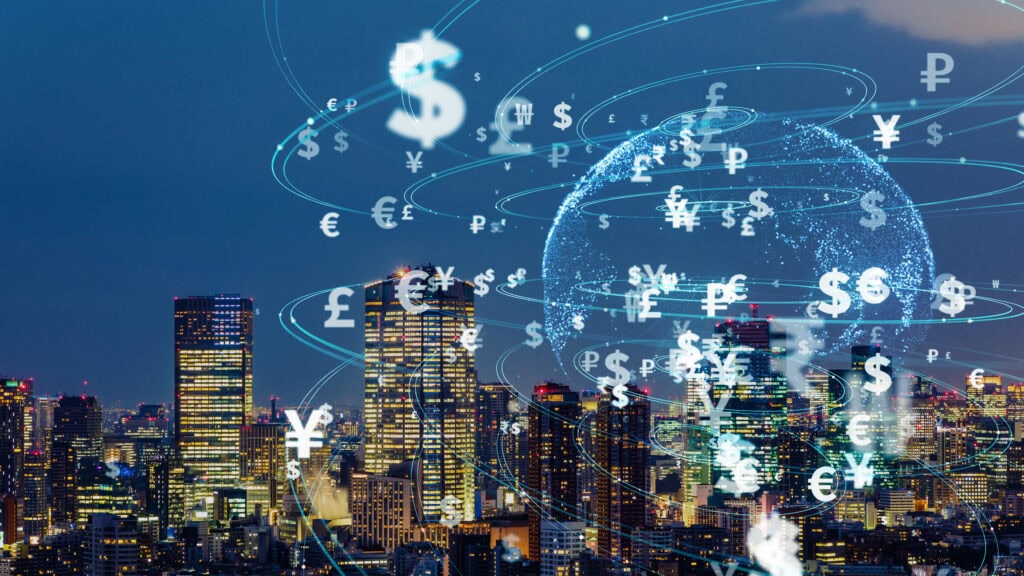能力育成:スマート製造におけるスキルギャップを埋める方法

インダストリー4.0とスマートマニュファクチャリングの台頭は、私たちが知る限りの産業を変革しつつあります。この重要な時期に、現代のイノベーションは深刻な製造業のスキル不足の緩和に役立つのでしょうか?そして、そもそもなぜインダストリー4.0のスキルギャップが存在するのでしょうか?現在、人材は不足しており、スマートマニュファクチャリングの進歩を取り入れるためには、より多くのトレーニング、スキルアップ、スキルリスキル、そして人材獲得が不可欠です。将来の製造業の需要に応えるためには、スキルギャップと人材不足は製造業にとって目新しいものではありません。全米製造業協会(NAM)は、これが製造業にとって重要な懸念事項であることを明らかにしました[…]
将来の製造業の労働力にとって適切なリーダーシップ研修が不可欠な理由

製造業を取り巻く環境が急速に進化する中、製造コングロマリットのリーダーはどのような課題を抱えているのでしょうか。そして、リーダーシップ研修はどのようにこれらの課題を解決できるのでしょうか。リーダーはイノベーションを先導し、成長を持続させなければなりません。だからこそ、このダイナミックな環境において、上級管理職や中間管理職にとってリーダーシップ研修は極めて重要なのです。しかし、優れたリーダーシップ研修とはどのようなものでしょうか。国際経営開発研究所(IMD)によると、「リーダーシップ研修とは、個人がリーダーシップのスキルと能力を開発・強化できるよう設計された体系的な研修です。」リーダーシップ研修は、従来の経営手法を超えて、戦略的思考を育み、実験を奨励し、チームがイノベーションを起こす力となる成長マインドセットを促進することが不可欠です。[…]
製造業の社会的持続可能性:変化を促進し、ビジネスの成長を促進

現代の市場において、目の肥えた消費者や投資家は、商業生産において厳格な環境・社会・ガバナンス(ESG)基準を遵守し、地球と地域社会への責任という価値観を体現する必要性にますます敏感になっています。ESGにおける「社会」とは、メーカーにとって何を意味するのでしょうか?製造業における社会的持続可能性とは、サプライチェーン全体における労働者の公正な待遇の確保、地域社会との良好な関係の構築、人権基準の遵守、そして従業員の福利厚生の促進を意味します。近年、この概念は環境への影響、企業の社会的責任(CSR)、倫理的調達といったより広範な考慮事項を含むように拡大しています。今日、世界各国で[…]
倫理的問題を避けるためにサプライヤー評価が重要な理由

サプライチェーンのダイナミクスは、かつてないほど複雑で、影響力が強く、複雑になっています。この複雑さの中に、サプライチェーン全体にわたって倫理基準が確実に維持されるという重要な懸念が存在します。そこで、サプライヤー評価の活用が、企業にとって倫理的な誠実さだけでなく収益を守るための重要なツールとして浮上します。しかし、サプライチェーン評価の目的は何でしょうか?サプライヤーの慣行を評価・精査することで、企業は労働搾取、環境破壊、人権侵害といった倫理的問題に直面するリスクを軽減することができます。企業の責任に関する意識と期待が高まるにつれ、透明性と説明責任への需要が高まっています[…]
持続可能な未来のための産業ネットワークソリューション

GETITソートリーダーシップシリーズの一環として、INCITのCEO兼創設者であるライムンド・クラインは、タタ・コミュニケーションズの戦略ソリューション担当ディレクターであるスリヴァサン・ナラシムハン氏(Sri)と対談し、製造業者が産業用通信とデジタル統合を通じて将来の成長と持続可能性をどのように実現できるかについて議論しました。「持続可能な未来のための産業ネットワークソリューション」と題された、示唆に富む対談から、5つの重要なポイントをご紹介します。1. ジョブショップ接続における重要な問題点への対応 世界中の製造業者は、特にジョブショップ接続と生産性測定において、大きな課題に直面しています。INCITのデータによると、ジョブショップ接続は製造業者にとって最も優先度の低い項目にランクされています。また、ジョブショップには既に接続が確立されているものもありますが、[…]
ESGデータガバナンスの欠如が製造業の持続可能性の進歩に与える影響

環境・社会・ガバナンス(ESG)への期待は、製造業を含むあらゆる産業において、日に日に重要性を増しつつあります。しかし、明るい兆しも見られます。フォーブス誌は、ESG重視の活動は「価値向上につながるベストプラクティスを取り入れることで、ビジネスを向上させる絶好の機会」になり得ると指摘しています。しかし、こうした新しい戦略は、既に混乱が続く製造業にとって、新たな複雑さを増す要因にもなります。サステナビリティへの取り組みにおいて、ESGデータガバナンスはどれほど重要なのでしょうか?持続可能な製造業におけるESGデータ管理の役割 ESG関連情報を効果的に管理・適用する実践、すなわちESGデータガバナンスは、ますます重要になっています[…]
インダストリー4.0時代の持続可能な製造業におけるデータのプライバシーとセキュリティ

インダストリー4.0は2011年に誕生したことが広く知られていますが、10年以上が経過した今、製造業はまさにデータ主導の革命の真っ只中にあります。世界経済フォーラムのホワイトペーパーによると、インダストリー4.0は、企業が相互接続されたバリューネットワークに力を合わせ、データと分析アプリケーションを活用することで生産性の向上、新たな顧客体験の創出、そして社会と環境への大きなインパクトを生み出すことを促すとされています。デロイト コンサルティングのグローバル インダストリーおよびシニア クライアント アドバイザーであるゲイリー・コールマン氏は、「第四次産業革命はまだ初期段階にある」と述べていますが、この時代がさらに進展するにつれて、これまでにないほど多くの可能性が解き放たれ続けるでしょう。
製造業の持続可能性のためのデジタルファイナンスは実現可能でしょうか?

お金はもはや現金や硬貨だけではありません。今日では、現金よりもデジタル取引の事例が増えており、現金の使用は年々減少しています。デジタルソリューションの導入拡大は、金融環境を必然的に変化させ、世界中の産業界が事業戦略を支援するために新たなデジタルファイナンスの選択肢を導入するようになりました。持続可能性と環境・社会・ガバナンス(ESG)は、世界中の製造企業にとって今や重要な考慮事項であり、製造業者は持続可能性への取り組みを支援するためにデジタルファイナンスにますます注目しています。デジタルファイナンス(オンラインファイナンスとも呼ばれる)とは、融資、投資、資金調達などの金融取引を促進するためにデジタルプラットフォームとテクノロジーを活用することを指します。この資金調達方法は[…]
FMCG業界のサプライチェーン規制の複雑さへの対応

製造業は、高度なスマート製造ツールやソリューションの導入により、ダイナミックな技術革新を遂げています。2023年のデロイトレポートによると、ロボット工学と自動化、データ分析、モノのインターネット(IoT)プラットフォームなど、デジタルトランスフォーメーションへの積極的な取り組みを始めている製造業が増えています。世界中の製造業に影響を与えるこれらの根本的な変革に加え、サプライチェーン規制も日用消費財(FMCG)の事業環境に影響を与えています。企業が直面するグローバルサプライチェーン規制は、貿易コンプライアンスや製品安全基準から環境規制や労働規制まで多岐にわたります。これらの規制は静的なものではなく、地政学的な変化に応じて常に進化しています。[…]
持続可能な繊維サプライチェーン管理:より環境に優しい成果のための戦略

世界貿易によって結びつき、推進される相互接続された世界において、効率的で持続可能なサプライチェーンを維持することは、業務効率と環境負荷低減の達成に大きな違いをもたらす可能性があります。サプライチェーンへの注目は的外れではありません。組織の運用コストの約50%から70%、そして温室効果ガス(GHG)排出量の90%以上がサプライチェーンに起因することが分かっています。したがって、適切なサプライチェーン管理戦略を持つことは、企業の環境、社会、ガバナンス(ESG)目標達成に不可欠です。健全なサプライチェーン管理計画には、調達、生産、流通プロセスに環境および社会に配慮した慣行を統合し、製品の環境影響を最小限に抑えることが含まれます。[…]
グリーンリーダーシップ:持続可能な変化と従業員のエンゲージメントを推進

異常気象がいかに深刻化しているか、最後に考えたのはいつでしょうか?気候変動の影響は世界中で日々感じられています。世界保健機関(WHO)によると、2030年から2050年の間に、気候変動は栄養不足、マラリア、下痢、熱中症だけで、年間約25万人の死亡者数の増加につながると予測されています。製造業を含むすべての業界は、環境問題への対応戦略を早急に策定し、より環境に優しく持続可能な未来を実現するために互いに責任を負わなければなりません。より環境に優しい世界に向けて、誰もが積極的に行動を起こすことが不可欠ですが、その先頭に立つ責任は政府と企業のリーダーにあります。[…]
製造業の変革において普遍的な持続可能性基準が重要な3つの理由

私たちは、目に見えないながらも基本的な標準によって支配されている世界に生きています。これらの標準は、個人、企業、そして政府を日々導いています。世界には、明確に定義された普遍的に理解されている参照データが複数存在し、それらは期待されるものを判断し、プロセス、材料、サービスなどが一定レベルの一貫性と信頼性を維持していることを保証するのに役立ちます。IEEE規格協会によると、標準とは簡単に言えば、「製品の開発、サービスの提供、プロセスの管理、あるいは世界とのやり取りなど、タスクを完了するための最良の方法を概説した、人々、業界、そして政府によって用いられる合意された規範」です。他のすべての業界と同様に、製造業もこの必要性から逃れることはできません[…]
産業メタバースと生成AIがスマート製造業に与える影響

コンピューティングにおける人工知能(AI)は、よりスマートで新しいプロセスへの道を開き、より正確な予測分析や自律システムなどを可能にしてきました。近年、機械学習アルゴリズムを活用したより高度なAI、すなわち生成型AIが登場し、これまで以上にスマートな機能への新たな扉を開いています。生成型AIは、生成的敵対ネットワーク(GAN)から一部発展したもので、2つのニューラルネットワークを訓練して連携させ、新しいデータを生成するAIの一種です。過去1年間、ChatGPTなどのAI搭載チャットボットの登場により、生成型AIの人気は急上昇しました。製造業においても、生成型AIは他のAIと並んで、スマート製造ソリューションにおいてますます重要になっています[…]
AI主導のハイパーパーソナライゼーションが製造サプライチェーンをどう変えるのか

近年、人工知能(AI)は製造業における急速なデジタル変革を牽引してきました。インダストリー4.0とスマート製造技術の普及以降、AIはサプライチェーン管理や生産最適化といった製造機能の向上においてますます重要な役割を果たしています。クラウドベースのサプライチェーン管理ツールやインテリジェントソリューションと組み合わせることで、AIは製造業者が商品の物理的な流れ、運用パフォーマンス、持続可能性指標などを追跡・管理することを可能にしました。また、AIは変化する顧客ニーズに対応するために、サプライチェーンにおけるハイパーパーソナライゼーションも可能にしました。パーソナライゼーションとカスタマイズの需要が高まる中、AI主導のハイパーパーソナライゼーションは製造業のサプライチェーンをどのように進化させているのでしょうか?AI主導のハイパーパーソナライゼーションの影響[…]
製造業がデジタル変革の過程で直面する5つのサイバーセキュリティの課題

近年の先進技術と新たなデジタルソリューションは、日常生活をより便利にし、企業の業務効率を新たなレベルに引き上げています。しかし、これらの新しいツールは新たなサイバーセキュリティの問題も生み出しており、データ侵害の頻発化により、プライバシーと経済的損失に深刻な影響が出ています。IBMのレポートによると、2023年のデータ侵害による損害額は世界全体で平均1兆5千万米ドル(約1億5千万円)に上ると推定されています。インダストリー4.0の台頭と製造業における先進デジタル技術の導入に伴い、業界リーダーはサイバーセキュリティリスクの増大を懸念し、サイバーセキュリティへの投資が増加しています。製造業におけるサイバーセキュリティ市場は、2027年までに1兆5千万米ドル(約1億5千万円)にまで拡大すると予想されています。
INCITのITAP 2023参加レポート:製造業の未来を変革する

シンガポール経済開発庁(EDB)のグローリー・ウィー副総裁(左)とシャロン・タン副総裁(右)とINCIT。2023年10月25日(水)、シンガポール – 国際産業変革センター(INCIT)は、2023年10月18日から20日まで開催された、製造業におけるイノベーションと産業の卓越性を象徴するイベント「アジア太平洋産業変革(ITAP)2023」にシルバーパートナーとして参加しました。実用的なソリューションと有意義な取り組みに重点を置き、ITAPでの私たちの歩みは、貴重な交流と洞察に満ちた対話によって彩られました。製品展示から共同ディスカッション、そして包括的なステージプレゼンテーションまで、ITAPでの私たちの経験を振り返ります。[…]
マイクロファクトリー:小規模で高度に自動化された工場が製造業の未来である理由

インダストリー4.0によるデジタル変革が製造業を取り巻く環境を大きく変えたことは疑いようがありません。人工知能(AI)や自動化といった技術により、製造業は業務効率を大幅に向上させ、生産性(最大15%から30%の増加)とダウンタイム(30%から50%の減少)の大幅な削減を実現しています。これらの技術革新は、マイクロファクトリーの普及にもつながっています。マイクロファクトリーとは、最先端のツールとソリューションを活用することで競争優位性を獲得し、従来の大規模工場では実現が難しい新たなレベルの柔軟性と拡張性を提供する小規模工場です。AI、機械学習、ビッグデータなどの革新的技術を活用することで、無駄の排除、プロセス […]
サプライチェーンのデジタル化とレジリエンス構築のためにメーカーが取るべき4つのステップ

サプライチェーンの混乱は、パンデミックで多くの企業が既に経験しているように、製造業者にとって深刻な結果をもたらす可能性があります。顧客の喪失や収益の減少、さらには潜在的な法的問題に至るまで、サプライチェーンの混乱の影響は長期にわたり、甚大な損害をもたらす可能性があります。サプライチェーンの混乱で悪評高い実績を持つメーカーは、評判の失墜により敬遠される可能性もあります。国境制限は過去のものとなり、ほとんどの工場が再開し、フル稼働できるようになった今、製造業者はもはやパンデミックをサプライチェーンの混乱の言い訳にすることはできません。実際、地政学的リスクがかつてないほど高まっている今、[…]
INCITのグローバル展開の拡大:2023年の次世代産業革命に向けたテックアップとグリーンアップ

当社のCEO兼創業者であるライムンド・クラインは、INCITを代表して、「2023年次世代産業革命に向けたテックアップとグリーンアップ」と題した2日間のインタラクティブ・ワークショップに参加しました。8月14日と15日にマレーシアで開催されたこのイベントには、政府省庁、業界団体、銀行、フィンテック企業、中小企業、多国籍企業など、著名な参加者が集まりました。イベントのハイライト:多様なプレゼンテーションと分科会を特徴とするこのワークショップでは、Industry4WARDの準備状況評価、信用リスク評価、ESG側面の理解といった重要なテーマが深く掘り下げられました。さらに、中小企業の刺激的な成功事例は、マレーシアにおけるIndustry 4.0の有望な展望を浮き彫りにしました。参加者は、洞察に満ちた議論や知識交換にも積極的に参加し、Industry 4.0がマレーシアの産業に及ぼす計り知れない影響を浮き彫りにしました。[…]
ウェアラブルロボットが製造業に革命を起こす ― このイノベーションの意義を探る

COVID-19パンデミック以前から、労働力不足は既に深刻化していました。産業界、特に製造業は、次々と押し寄せる新たな課題に直面する中で、苦境に立たされていました。製造業の労働力は高齢化が進んでおり、若者は厳しい肉体労働環境の倉庫で働くことに意欲的ではありません。労働災害も増加傾向にあります。製造業は岐路に立たされていました。事業の持続可能性だけでなく、従業員の安全を守ることも課題でした。また、筋骨格系疾患などの怪我から従業員を守ることも企業の責任です。しかし、こうした課題の中から、新たな[…]
最先端のデータ分析:なぜ新しい技術だけでは未来の工場を活性化できないのか

データは、シンプルな集計マーカーやメモから複雑なスプレッドシートやクラウドストレージまで、何世紀にもわたって様々な形で収集され、プロセスに不可欠な要素となってきました。今日、作成・保存される複雑なデータ、いわゆるビッグデータの量と量は驚異的で、1日あたり推定25億ギガバイトが生成されています。製造業では、人工知能(AI)、機械学習(ML)、モノのインターネット(IoT)デバイスなどの、よりスマートで相互接続された技術が業務システムに統合され、作成・配信されるデータの量が急速に増加しています。しかし、ビッグデータの活用と分析を十分に理解していなければ、データは[…]
循環型経済はハイテク電子機器のニーズをどのように維持するのでしょうか?

製造業において、循環型経済とは閉ループ生産を指します。これは、材料や製品がシステム内に保持され、ライフサイクルの終わりを迎えた後も継続的に再利用・再活用されることを意味します。これにより、有限資源、特に携帯電話やノートパソコンなどの日常的に使用するハイテク電子機器の重要な部品を構成する希土類元素への依存が軽減されます。デジタル化が急速に進み、ハイテク電子機器への需要がますます高まる今日、製造業者はより少ない資源でより多くの成果を上げ、同時に持続可能性を高める方法を早急に模索する必要があります。そして、循環型経済は、その実現方法となる可能性があります。循環型経済が5つの方法[…]
グリーン製造:リーン手法と消費者主導型製造の影響

急速に変化する今日のビジネス環境において、製造業はより持続可能な慣行を導入する必要性が高まっています。スマートマニュファクチャリングの台頭により、生産性を向上させながら廃棄物を削減する、よりエネルギー効率が高く俊敏なプロセスの重要性が注目されています。近年、ステークホルダー、消費者、そして金融機関が、環境・社会・ガバナンス(ESG)指標をビジネスリスクや長期的な価値創造と密接に相関していることから、より厳しい監視の目を向けていることを考えると、これは特に重要です。その影響は明らかです。世界のリーダーたちは、持続可能な慣行が環境に有益であるだけでなく、コスト削減、評判の向上、そして顧客ロイヤルティの向上にもつながることに急速に気づき始めています。その結果、[…]
デジタルトランスフォーメーションが繊維製造業の生産性をどのように向上させるか

繊維製品は日常生活に欠かせない存在です。衣類や家具から寝具、そして個人用保護具やサージカルマスクといった医療用繊維に至るまで、繊維製品なしでは生活を送ることはほぼ不可能です。サプライチェーンの問題やエネルギーコストの高騰といった問題に対処しながらこの需要に応えるため、繊維メーカーはより少ない資源でより多くのものを生み出すことで生産性を向上させる方法を模索してきました。そして、デジタルトランスフォーメーションがその鍵となるかもしれません。なぜデジタルトランスフォーメーションは繊維業界にとって重要なのでしょうか?近年、製造業における生産性危機は深刻化しており、特に繊維業界では顕著です。この背景には3つの大きな要因があります。まず、繊維サプライチェーン […]
製造業におけるデジタルトランスフォーメーションが現場のインテリジェンスを実現し、業務改善を実現する方法

手作業によるプロセスでは、製造部門と品質管理部門がサイロ化してしまうことがよくあります。これは、製造部門と品質管理部門のマネージャーが製品やプロセスを物理的に確認し、その結果をペンと紙で記録することが多いためです。この情報が組織の意思決定者に届くかどうかは不確実で、透明性の問題につながります。産業用IoT(IIoT)を活用することで、メーカーはデジタル製造現場を構築し、最初から現場インテリジェンスを確立することができます。適切なサポートがあれば、現場インテリジェンスは保証問題のリスクを軽減し、合理化・効率的なプロセスを構築し、無駄を削減することで、より高品質な製品と大幅なコスト削減を実現します。現場インテリジェンスの4つのメリット – そして、それらを施設に統合する方法 現場インテリジェンスには、主に4つのメリットがあります […]
2023年の見通し:製造業の成長に影響を与える3つのトレンド

世界がCOVID-19後の世界へと移行する中、製造業をはじめとする各業界は、世界的な不確実性が続く中で成長を目指し、プロセスの再調整を目指しています。サプライチェーンの問題が徐々に改善し、世界中でデジタル変革とビジネス変革が進む中、2023年には製造業の改善、成長、そして拡大を支援する機会が生まれるでしょう。特に、世界は中国のロックダウン解除を注視しています。ここでは、ビジネスリーダーが認識すべき2023年の製造業の3つのトレンドと、それらへの対応策をご紹介します。人材とスキル管理は依然として主要な懸念事項です。製造業の人材プールは縮小しています。2010年代後半にも、高齢化に関する警鐘が鳴らされていました[…]
スマートで持続可能な製造 – クリーンテクノロジーと先進的な製造を融合

近年の自動化、機械学習、そして先端技術の台頭は、製造業におけるデジタルトランスフォーメーションを加速させ、よりスマートで効率的な製造プロセスへと導いています。こうした最新技術の進歩を様々なプロセスやシステムに統合することで、製造業は生産性と効率性の向上に成功しましたが、さらに重要なのは、より柔軟性、俊敏性、そして将来への備えを強化できたことです。現在、環境と社会への責任が強く意識される中で、スマート製造業はより環境に優しく、より持続可能な生産活動へと移行しています。2050年までにネットゼロを達成するための時間は刻々と迫っており、環境規制の厳格化、投資家の要求の高まり、顧客の期待の変化など、様々な要因により、持続可能性は最重要課題となっています。[…]
製造サプライチェーンのレジリエンス向上

パンデミックと最近の地政学的事象、そしてマクロ経済の逆風が相まって、一部のセクターではサプライチェーンの混乱が生じています。世界的なビジネス環境の混乱が続く中、製造業は将来の予期せぬ変化に適切に対応するために、どのようにレジリエンスの高いサプライチェーンを構築できるでしょうか。
湾岸協力会議(GCC)地域のデジタル変革

デジタル化と持続可能性が注目される中、湾岸協力会議(GCC)諸国は石油依存から脱却し、デジタル変革戦略を導入しながら製造業を発展させ、世界の他の国々と歩調を合わせることができるだろうか?「石油とガスが存在しなかったら、私たちは何を生産できるだろうか?」と、カタール開発銀行のアブドゥルアズィーズ・ビン・ナーセル・アル=ハリーファCEOは問いかける。GCCはエネルギー・電力産業で知られているため、この地域が世界に石油を生産していない時代を想像するのは難しいように思えるかもしれない。しかし、デジタル化と持続可能性が注目を浴び、より多くの国々がネットゼロの達成と化石燃料への依存削減を誓約している今、[…]
インダストリー 5.0 とは何か、そしてインダストリー 4.0 とどのような関係があるのでしょうか?

インダストリー4.0は近年、製造業に革命をもたらしました。今日のデジタル化が進んだ工場では、人工知能、データ分析、クラウドといったスマートテクノロジーを活用し、生産を最適化し、廃棄物を削減することで、生産性を従来以上に向上させています。これらのテクノロジーは、機械のダウンタイムを30%から50%削減し、予測精度を85%向上させるなど、数多くのメリットをもたらしています。こうした継続的な改善により、インダストリー4.0は徐々にインダストリー5.0へと進化しています。しかし、これらの工業化段階の主な違いは何でしょうか?そして、ビジネスリーダーは製造業の近代化における次の段階にどのように備えるべきでしょうか?第五次産業革命であるインダストリー5.0は、工業化における新たな発展段階ではありません。むしろ、 […]